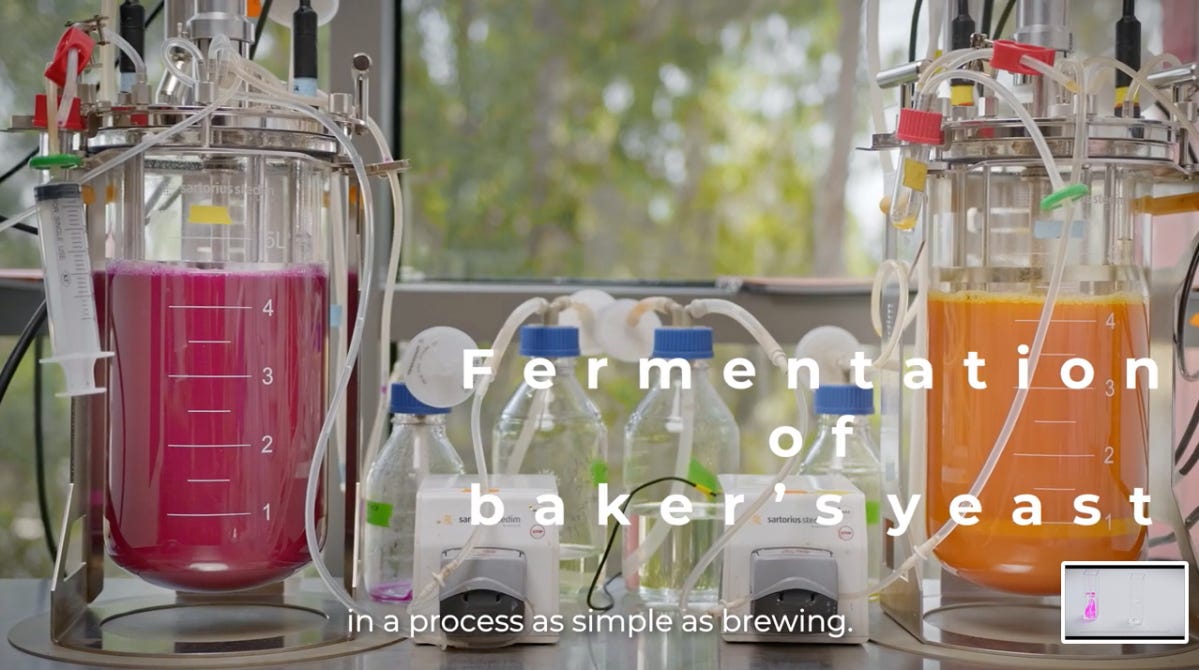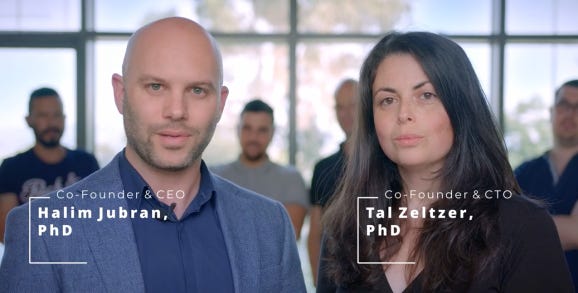Phytolon and Ginkgo Bioworks Collaborate to Take Biological Production of Vibrant Food Colors to the Next Level
The companies seek to leverage cell programming to produce betalain pigments across the full yellow-to-purple spectrum
Phytolon, a growing startup company making natural food colorants, announced a partnership with Ginkgo Bioworks (NYSE: DNA), the leading horizontal platform for cell programming, to produce vibrant cultured food colors via fermentation of yeast. Under this partnership, Phytolon is leveraging Ginkgo’s ability to engineer biology at scale to work together on the production of vibrant betalain pigments, the healthy and colorful compounds found in foods like beets and cactus fruit. The project aims to take Phytolon’s colors across the full ‘yellow-to-purple’ spectrum to the next level, and to potentially maximize the business opportunity of Phytolon’s vibrant colors for applications in the food and cosmetics industries.
Scientists have developed hundreds of artificial food dyes by using the tools of synthetic chemistry to convert petrochemical sources into a wide range of colors. Biotechnology offers an opportunity to tap into the vibrant colors of biology to produce more sustainable, yet equally vibrant, colors. While artificial dyes are visually appealing and cheap to manufacture, many have been banned in food and feed due to health concerns. As consumers increasingly seek out more sustainable and nature-derived products, the food industry is working to find food colors that have equivalent pigment vibrancy to those found in synthetic chemical dyes but which come from biological rather than petrochemical sources.
Phytolon has developed a proprietary process for producing betalain pigments through precision fermentation of certain yeast strains. Together, Phytolon and Ginkgo are partnering with the goal of maximizing the production efficiency of purple and yellow betalain-producing strains.
“We’re excited to work with Ginkgo to develop natural food colors that can potentially outperform conventional artificial dyes in cost and performance,” says Dr. Tal Zeltzer, Co-founder and CTO of Phytolon. “We believe biotechnology makes it possible to produce a wider range of colors than ever before that may outperform current benchmark colorants, and we look forward to building products that may meet and even exceed consumer expectations for healthier, sustainable foods, all while aiming to maintain industry requirements for high quality and cost-efficiency.”
“We love enabling growing startups like Phytolon through our platform, using biotechnology to challenge industry norms and attempt to build a fundamentally better product than what’s on the market today,” said Jennifer Wipf, Head of Commercial, Cell Engineering at Ginkgo Bioworks. “The planet needs new sustainable solutions, and we are excited to partner with Phytolon to support a more sustainable food system.”
About Phytolon
Phytolon is a biotechnology startup company that is taking food coloring to the next level by leveraging a novel technology for production of natural pigments via precision fermentation of yeast. Phytolon’s products have been successfully validated by global leaders in the food industry, and Phyloton expects to enter into commercialization agreements with initial strategic partners in the near term. Phytolon is supported by partners such as The Trendlines Group (SGX:42T) (OTCQX:TRNLY), Millennium Foodtech, EIT-Food, Consensus Business Group, Arkin Holdings and others. For more information, visit http://www.phytolon.com.
About Ginkgo Bioworks
Ginkgo is building a platform to enable customers to program cells as easily as we can program computers. The company’s platform is enabling biotechnology applications across diverse markets, from food and agriculture to industrial chemicals to pharmaceuticals. Ginkgo has also actively supported a number of COVID-19 response efforts, including K-12 pooled testing, vaccine manufacturing optimization and therapeutics discovery. For more information, visit http://www.ginkgobioworks.com.





